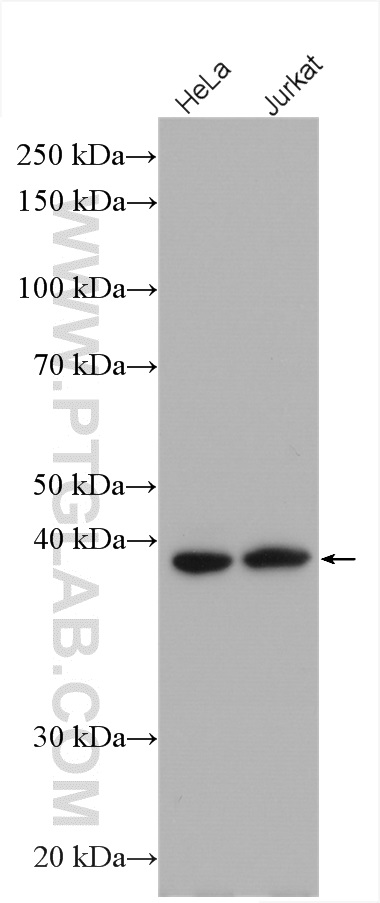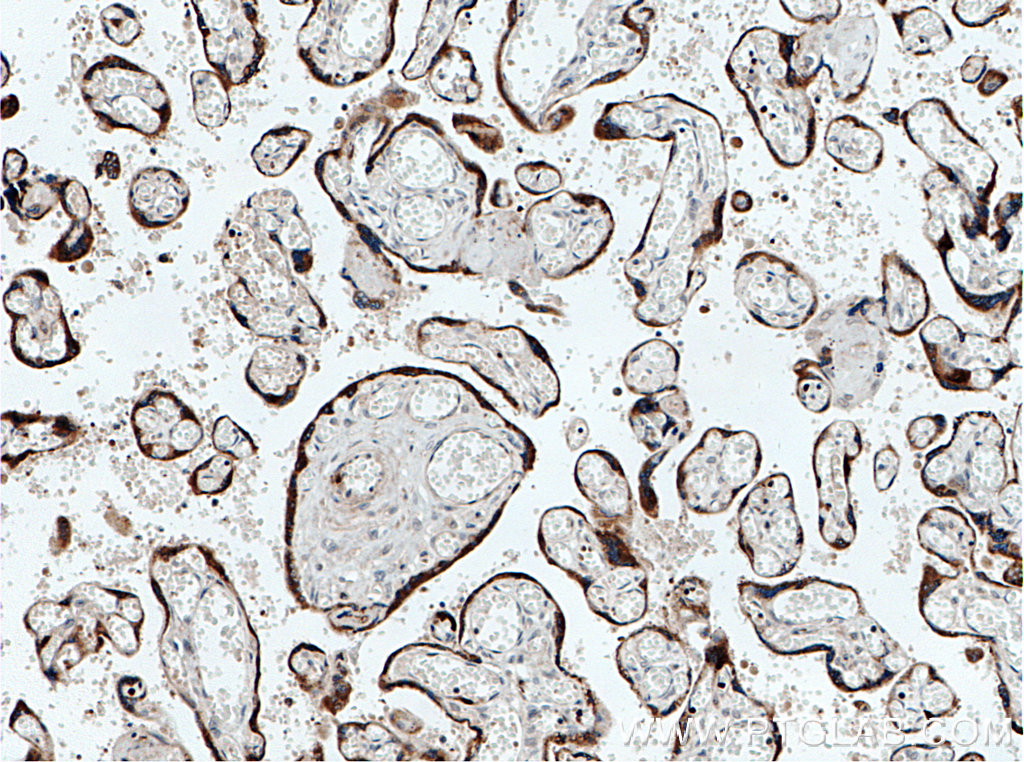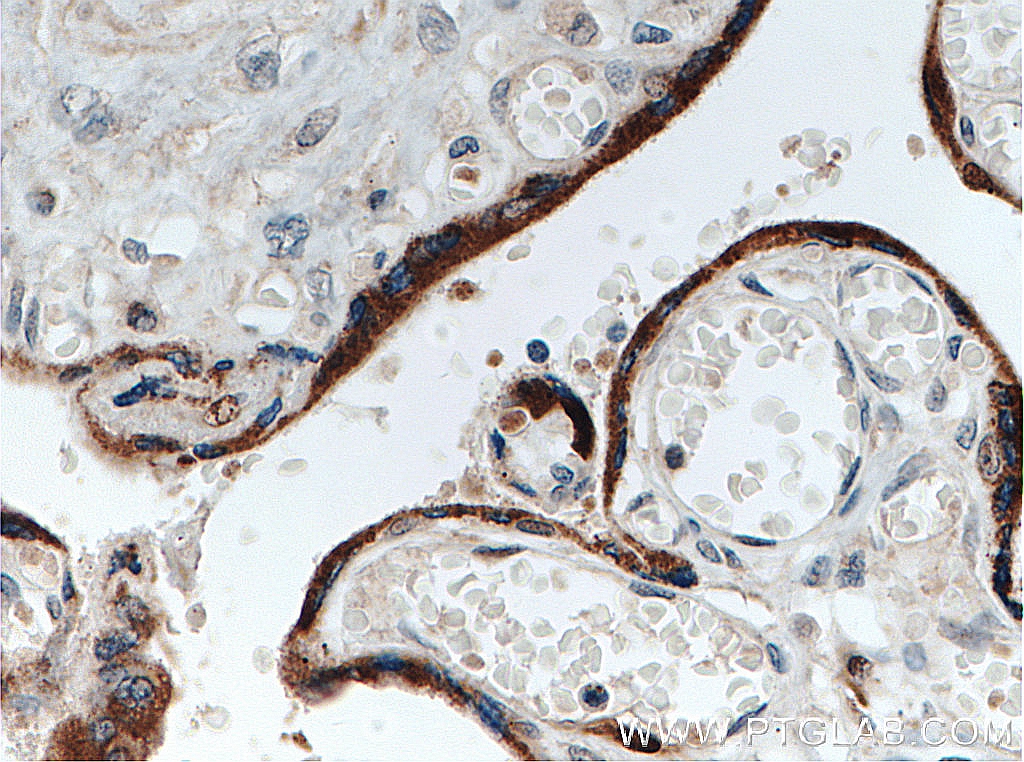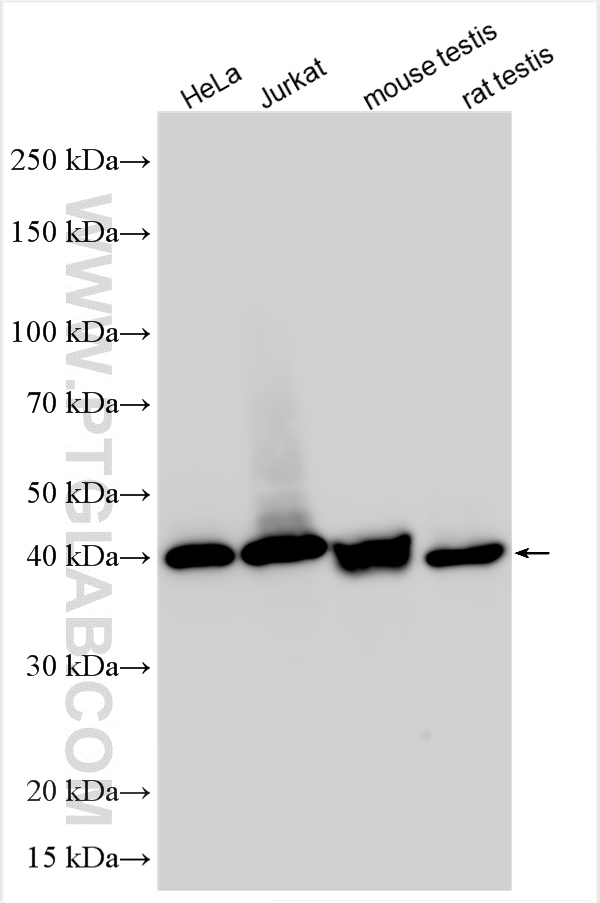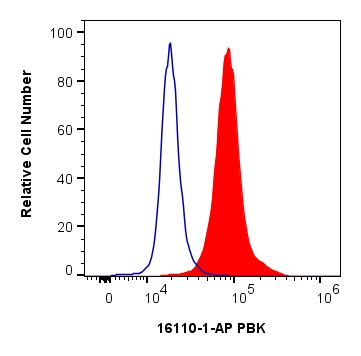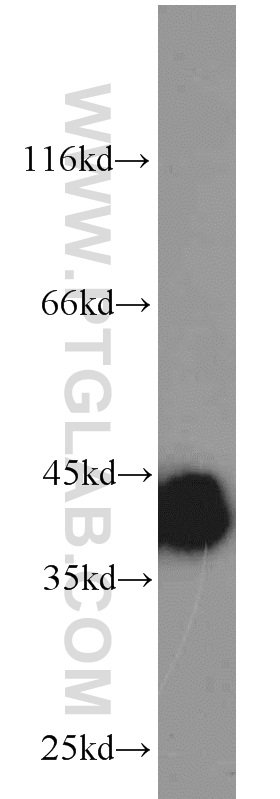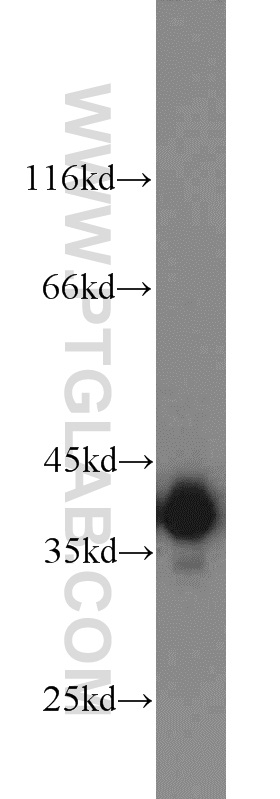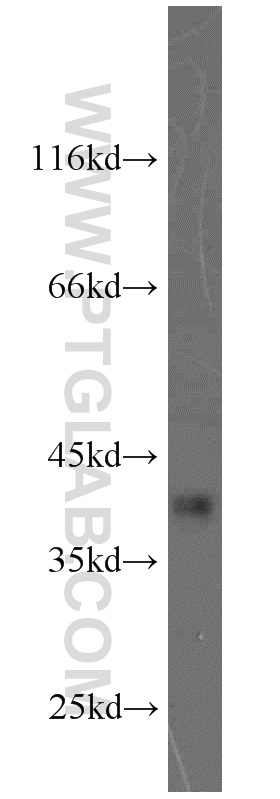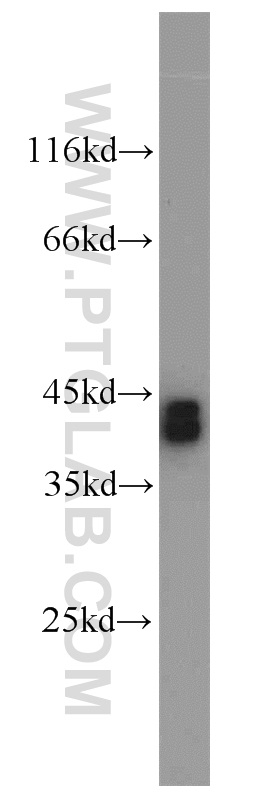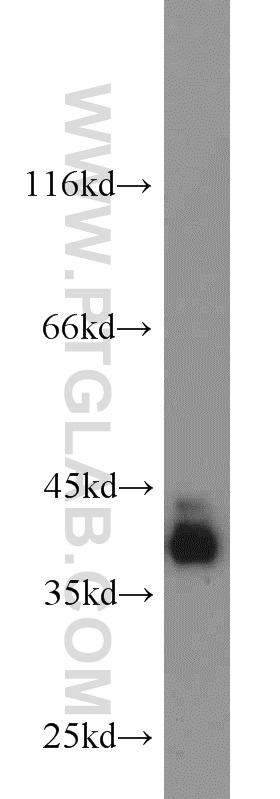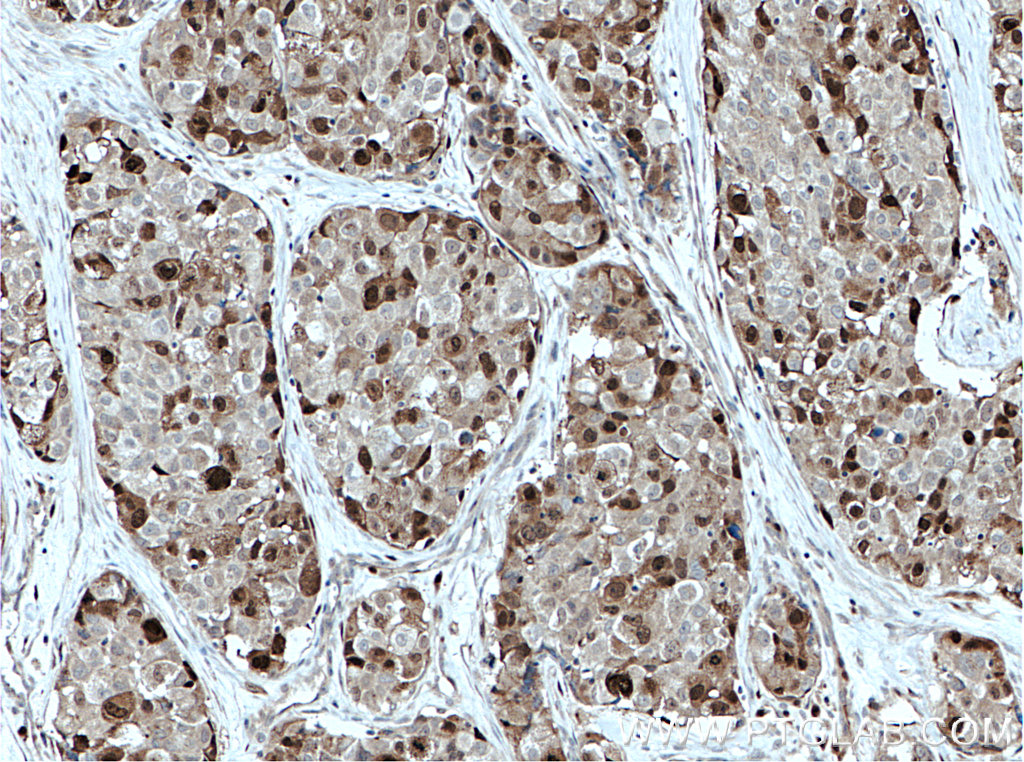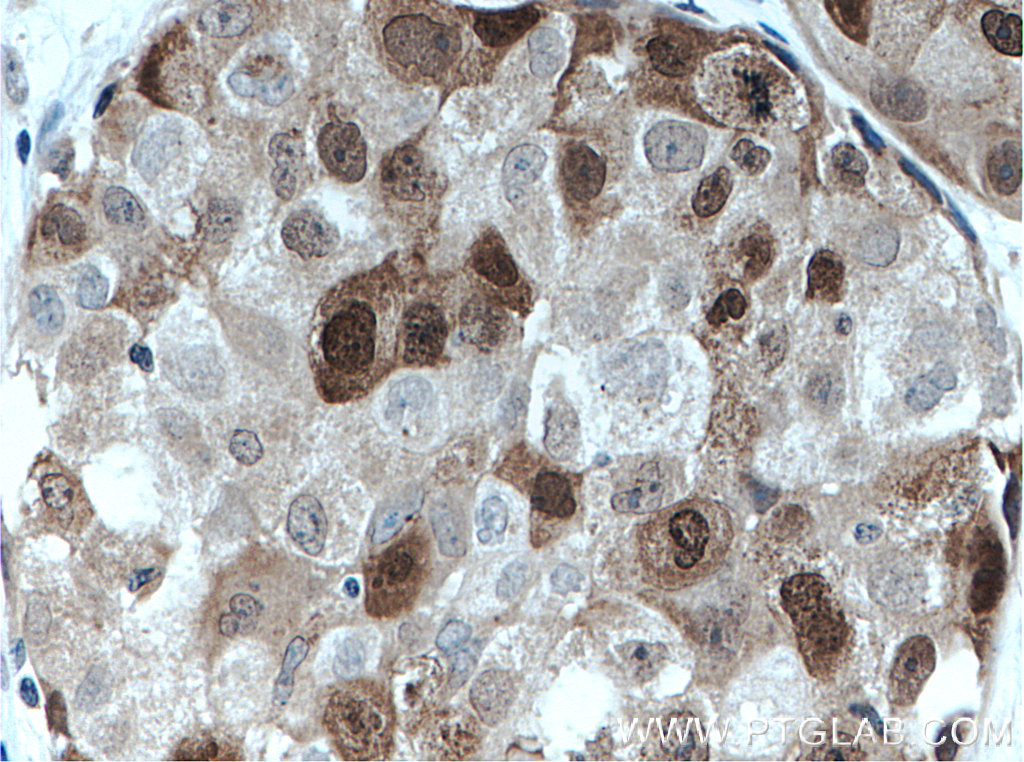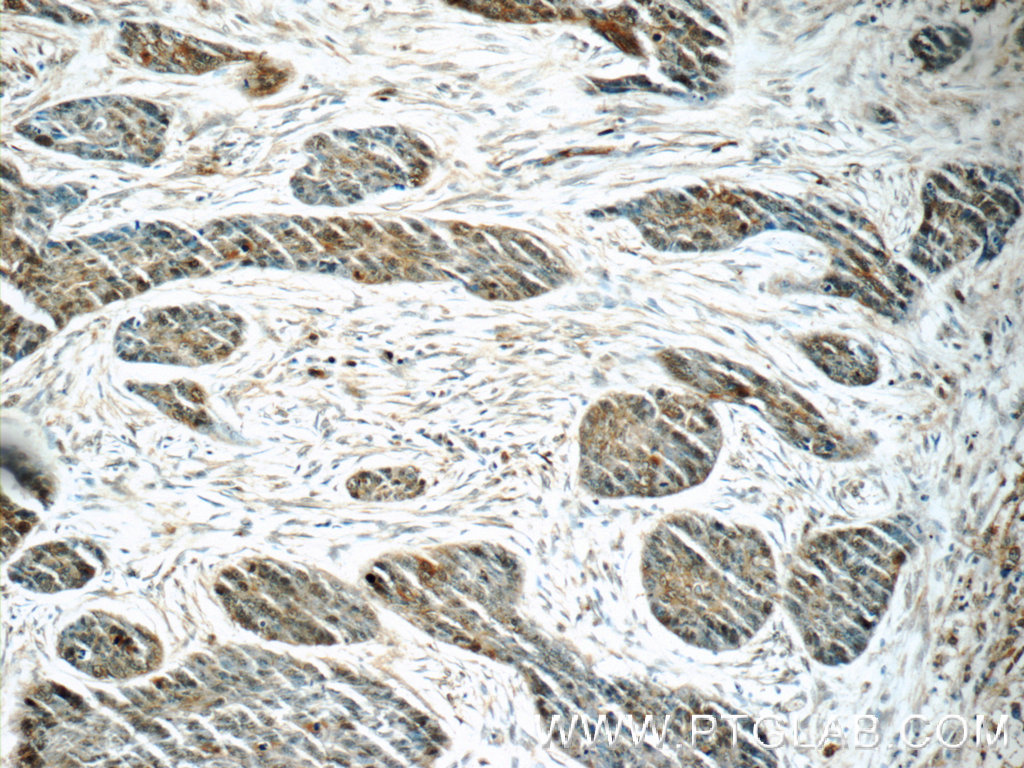验证数据展示
经过测试的应用
| Positive WB detected in | HeLa cells, Jurkat cells, mouse ovary tissue, mouse testis tissue, NIH/3T3 cells, rat testis tissue |
| Positive IHC detected in | human placenta tissue, human lung cancer tissue, human skin cancer tissue Note: suggested antigen retrieval with TE buffer pH 9.0; (*) Alternatively, antigen retrieval may be performed with citrate buffer pH 6.0 |
| Positive FC (Intra) detected in | HepG2 cells |
推荐稀释比
| 应用 | 推荐稀释比 |
|---|---|
| Western Blot (WB) | WB : 1:3000-1:10000 |
| Immunohistochemistry (IHC) | IHC : 1:50-1:500 |
| Flow Cytometry (FC) (INTRA) | FC (INTRA) : 0.80 ug per 10^6 cells in a 100 µl suspension |
| It is recommended that this reagent should be titrated in each testing system to obtain optimal results. | |
| Sample-dependent, Check data in validation data gallery. | |
产品信息
16110-1-AP targets PBK/SPK in WB, IHC, IF, FC (Intra), IP, CoIP, ELISA applications and shows reactivity with human, mouse, rat samples.
| 经测试应用 | WB, IHC, FC (Intra), ELISA Application Description |
| 文献引用应用 | WB, IHC, IF, IP, CoIP |
| 经测试反应性 | human, mouse, rat |
| 文献引用反应性 | human, mouse, rat |
| 免疫原 | PBK/SPK fusion protein Ag9033 种属同源性预测 |
| 宿主/亚型 | Rabbit / IgG |
| 抗体类别 | Polyclonal |
| 产品类型 | Antibody |
| 全称 | PDZ binding kinase |
| 别名 | PBK, MAPKK-like protein kinase, MAPKK like protein kinase, Lymphokine-activated killer T-cell-originated protein kinase, EC:2.7.12.2 |
| 计算分子量 | 322 aa, 36 kDa |
| 观测分子量 | 36-40 kDa |
| GenBank蛋白编号 | BC015191 |
| 基因名称 | PBK |
| Gene ID (NCBI) | 55872 |
| RRID | AB_2283508 |
| 偶联类型 | Unconjugated |
| 形式 | Liquid |
| 纯化方式 | Antigen affinity purification |
| UNIPROT ID | Q96KB5 |
| 储存缓冲液 | PBS with 0.02% sodium azide and 50% glycerol , pH 7.3 |
| 储存条件 | Store at -20°C. Stable for one year after shipment. Aliquoting is unnecessary for -20oC storage. |
背景介绍
PBK(PDZ-binding kinase) is also named as TOPK, CT84, Nori-3, SPK and belongs to the MAP kinase kinase subfamily. PBK may have a role in the regulation of cellular proliferation and progression of the cell cycle. It has a characteristic cdc2ycyclin B phosphorylation site(SyT-P-X-KyR) at its N terminus,which is conserved across species, and it is phosphorylated in a cell cycle-dependent manner at mitosis, and that this phosphorylation is required for its activation(PMID:10779557).
实验方案
| Product Specific Protocols | |
|---|---|
| WB protocol for PBK/SPK antibody 16110-1-AP | Download protocol |
| IHC protocol for PBK/SPK antibody 16110-1-AP | Download protocol |
| Standard Protocols | |
|---|---|
| Click here to view our Standard Protocols |
发表文章
| Species | Application | Title |
|---|---|---|
Genomics Proteomics Bioinformatics Specific Regulation of m6A by SRSF7 Promotes the Progression of Glioblastoma. | ||
Invest Ophthalmol Vis Sci Single-Cell Transcriptomics Reveals Cellular Heterogeneity and Complex Cell-Cell Communication Networks in the Mouse Cornea | ||
Biomolecules Identification of a Fibroblast-Related Prognostic Model in Glioma Based on Bioinformatics Methods | ||
Invest Ophthalmol Vis Sci Single-Cell RNA Transcriptome Helps Define the Limbal/Corneal Epithelial Stem/Early Transit Amplifying Cells and How Autophagy Affects This Population.
| ||
Front Endocrinol (Lausanne) PBK/TOPK Inhibitor Suppresses the Progression of Prolactinomas. |
